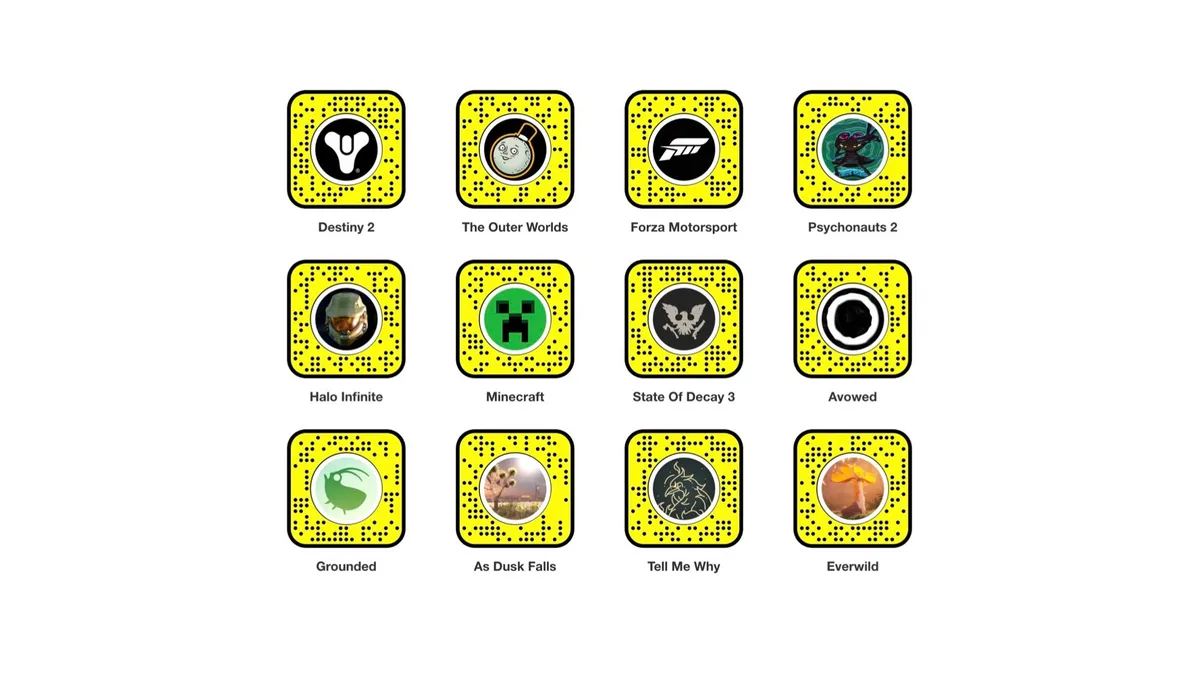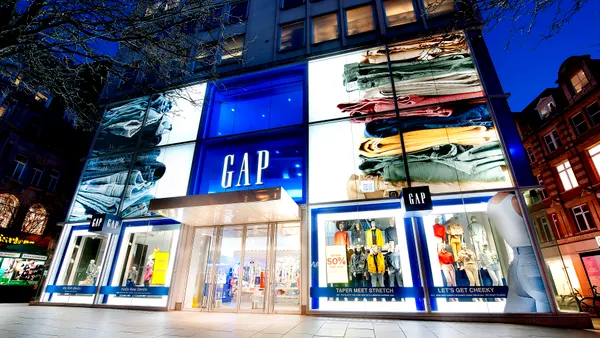Brief:
- Microsoft's Xbox gaming platform this week debuted 12 augmented reality (AR) lenses on photo-messaging app Snapchat to promote the upcoming release of its next-generation video game console, per information shared with Mobile Marketer. The lenses were based on many of the games that Microsoft introduced at its Xbox Games Showcase, a special online event to highlight the Xbox Series X that goes on sale during the holiday shopping season.
- The AR lenses, which are based on game titles including "Halo Infinite," "Minecraft," "Destiny 2" and "Forza Motorsport," are available on Snapchat and the Snap Camera desktop platform. Microsoft worked on the lenses with Snapchat and Look Mister, a developer of mixed-reality content.
- To boost awareness for the lenses, Snapchat's parent company Snap launched a Snap Camera Gaming Category Takeover for Xbox. Gamers can use the Snap Camera Lenses in a videoconference call or livestream, per Snap.
Insight:
Microsoft's promotion on Snapchat aims to build excitement for its updated Xbox gaming console and video game titles that will be released during the holiday shopping season. The company hosted the first Xbox Games Showcase, its biggest gaming event of the year, with a livestreamed presentation that let viewers see a demonstration of the next Xbox X console while also practicing social distancing.
By creating AR lenses on Snapchat, Microsoft can engage a younger audience that's more likely than older generations to play video games. Among Snapchat's 238 million daily active users (DAUs), more than 180 million engaged with AR at least once a day in Q2. Snapchat each month reaches more than 100 million people in the U.S., including more than 90% of people ages 13 to 24 and more than 75% of people ages 13 to 34, per information provided by Snap. Those demographics match the profile of the 75% of U.S. households that have at least one gamer, as measured by the Entertainment Software Association (ESA). The trade group found that among gamer households, 21% of gamers are under 18 while 40% are ages 18 to 35. The average age of the most frequent buyers of console games is 33, compared with 37 for mobile games and 38 for PC games, per the ESA.
The promotion is especially important in urging gamers to upgrade to the Xbox X, Microsoft's first video game console in seven years. The company seeks to grow its share of the global video game market, which is forecast to expand 9.3% to $159 billion this year, per Newzoo. The researcher estimates the market for console games will increase 6.8% to $45.2 billion, which is slower than the 16% growth for mobile games whose sales will total $63.6 billion. Microsoft's personal computing business, which includes Xbox, saw sales growth of 14% to $12.9 billion in the most recent quarter from a year earlier, in line with its total revenue growth of 13% to $38 billion, the company reported this week.
Xbox is the latest brand to create AR lenses on Snapchat to engage smartphone users with a more immersive experience. With many people placing delivery orders for food while stuck at home during the coronavirus pandemic, DoorDash in May sponsored AR lenses that let Snapchat users immerse themselves in virtual versions of popular restaurant chains including Cheesecake Factory, Chili's and Outback Steakhouse. The same month, financial services company USAA introduced its first AR lens as part of its annual Memorial Day event. Universal Pictures in April created an AR lens that let Snapchat users transform themselves into characters from the movie "Trolls World Tour," which was released straight to video-on-demand (VOD) platforms.
At the annual Snap Partners Summit, Snap last month introduced software tools to integrate AR content with third-party mobile apps. Nike, Triller and Major League Baseball were among the first brands to use Snap's Camera Kit. To broaden its appeal among marketers, Snapchat in March released software tools to help create AR ads for the image-messaging app. Lens Web Builder, which parent company Snap touted as the first web-based AR Lens production tool, doesn't require specialized technical expertise to create professional-looking AR content.












